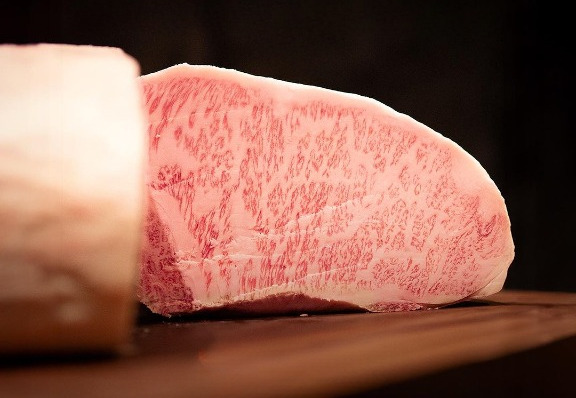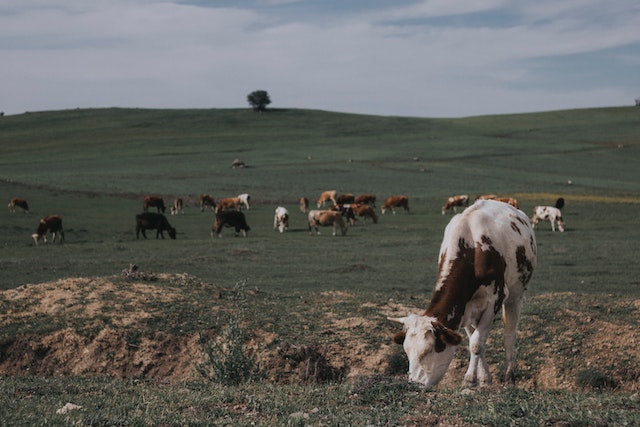The Rise of Meatless Meat: A Look at the Latest Plant-Based Alternatives
 by
Leo Bisma
by
Leo Bisma  April 13, 2023
April 13, 2023
In recent years, there has been a noticeable shift in consumer preferences towards more plant-based options. This has led to the rise of meatless meat, which is a plant-based alternative to traditional meat products.

As more and more people are becoming conscious about their health and the environment, meatless meat has become increasingly popular. But what exactly is meatless meat? And is it a healthy alternative to traditional meat?
In this article, we will explore the latest plant-based alternatives to meat, what they are made of, and their potential health benefits. We will also provide a halal menu with both Western and Asian cuisine that includes delicious meatless options for our guests to enjoy.
What Is Meatless Meat?
As the name suggests, meatless meat refers to plant-based products designed to mimic the taste and texture of traditional meat. Instead of animal meat, these products use a variety of plant-based proteins such as soy, pea, wheat, and even mushrooms to create a meat-like texture and flavor.
One of the most common sources of protein used in meatless meat is soy, which is known for its ability to absorb flavors and mimic the texture of meat. Pea protein is another popular option that is rich in amino acids and has a neutral taste, making it versatile for use in a variety of meatless products. Wheat protein, also known as seitan, has a chewy texture and is often used to create vegan versions of meat products like bacon or deli slices.
Meatless meat products can also be made using other ingredients like mushrooms, which provide a meaty flavor and texture, and jackfruit, which has a stringy texture that can be used in place of lamb or chicken.
Read more: Meat and Potatoes: Hearty Comfort Food for Meat Lovers
What Are The Latest Plant-Based Alternatives?
The latest plant-based alternatives include products such as the Impossible Burger and Beyond Meat, which have gained widespread popularity in recent years. These products are designed to look and taste like traditional meat products, but are made entirely from plant-based ingredients.
1. The Impossible Burger
Burger patty is made from plant-based ingredients, such as soy protein and potato protein. The patty is designed to look and taste like real beef, with a similar texture and juiciness.
2. Beyond Meat
Another popular brand that offers plant-based alternatives to meat products, such as burgers, sausages, and ground beef. Beyond Meat uses pea protein as the main ingredient in its products.
3. Emerging brands
In addition to well-known brands like Impossible Foods and Beyond Meat, there are also many smaller companies that are developing innovative plant-based alternatives. For example, some companies are using mushrooms or jackfruit as the main ingredient in their products.
4. Plant-based seafood
while most plant-based alternatives focus on meat products, there are also some companies that are developing plant-based seafood alternatives. These products are typically made from seaweed, algae, or other plant-based ingredients.
5. Advancements in taste and texture
One of the key areas of focus for plant-based alternatives is improving the taste and texture to make them more similar to traditional meat products. Many companies are investing in research and development to improve their products in these areas.
As the popularity of plant-based alternatives continues to rise, it's natural to wonder how they compare to traditional meat products. Here's a closer look at the differences between the two options:
How Do Plant-Based Alternatives Compare To Traditional Meat Products?
1. Nutritional Value
Plant-based alternatives often have less fat and cholesterol than traditional meat products, making them a healthier choice for consumers.
However, traditional meat products are typically higher in protein and certain essential vitamins and minerals, such as iron and vitamin B12.
2. Taste and Texture
Plant-based alternatives have come a long way in terms of taste and texture, and many brands are now able to replicate the taste and feel of traditional meat products.
However, some consumers may still prefer the taste and texture of traditional meat products over plant-based alternatives.
Read more: Roast Beef: A Delicious and Nutritious Main Course for Any Occasion
Environmental Impact Comparison of Meatless Meat
The environmental impact of meat production is well-documented, with livestock farming contributing to greenhouse gas emissions, deforestation, and water pollution. Here, we will compare the environmental impact of plant-based alternatives to traditional meat products.
1. Carbon footprint
Plant-based alternatives generally have a smaller carbon footprint than traditional meat products. For example, a study by the University of Michigan found that producing a Beyond Burger generates 90% less greenhouse gas emissions than producing a quarter-pound beef burger. This is because plant-based alternatives require less land, water, and other resources to produce.
2. Water usage
The production of meat products requires significantly more water than plant-based alternatives. According to the Water Footprint Network, it takes around 15,000 liters of water to produce 1 kg of beef, compared to just 1,250 liters of water to produce 1 kg of soybeans. This means that plant-based alternatives can significantly reduce water usage in food production.
3. Land usage
Animal agriculture requires vast amounts of land for grazing, feed production, and other purposes. This has contributed to deforestation and other land use changes that have negative environmental impacts. In contrast, plant-based alternatives require much less land to produce. For example, it takes just 2.5 acres of land to produce one million calories of soybeans, compared to 10 acres of land to produce one million calories of beef.
Read more: Meatloaf Makeover: Creative Twists on a Comfort Food Classic
Cost Comparison
One of the factors that consumers often consider when choosing between plant-based alternatives and traditional meat products is the cost. Plant-based alternatives are often perceived as more expensive than traditional meat products, but this is not always the case.
While prices can vary depending on factors such as location and availability, here are some general considerations to keep in mind:
Plant-based alternatives are often more expensive than traditional meat products. This is due in part to the higher cost of production and the ingredients used.
However, the cost of plant-based alternatives has been decreasing as the market grows and production becomes more efficient.
Additionally, plant-based alternatives may offer savings in the long run due to the reduced environmental impact and potential health benefits.
Meatguy Steakhouse strives to offer plant-based alternatives at competitive prices while maintaining high-quality standards for all menu items.
—-------
In conclusion, the rise of plant-based alternatives has presented consumers with a new option when it comes to choosing their meals. While traditional meat products have their benefits, such as high protein content and a distinct taste, plant-based alternatives have emerged as healthier and more sustainable options with a lower environmental impact.
Although plant-based alternatives can be more expensive than traditional meat products, their nutritional benefits and long-term environmental advantages make them a valuable investment.
At Meatguy Steakhouse, we strive to cater to the diverse preferences of our clientele by offering both traditional meat products and plant-based alternatives. We encourage our customers to try both options and make their own informed decision. Whether you choose a juicy steak or a delicious plant-based burger, we are committed to providing a high-quality dining experience that satisfies your cravings and exceeds your expectations.









